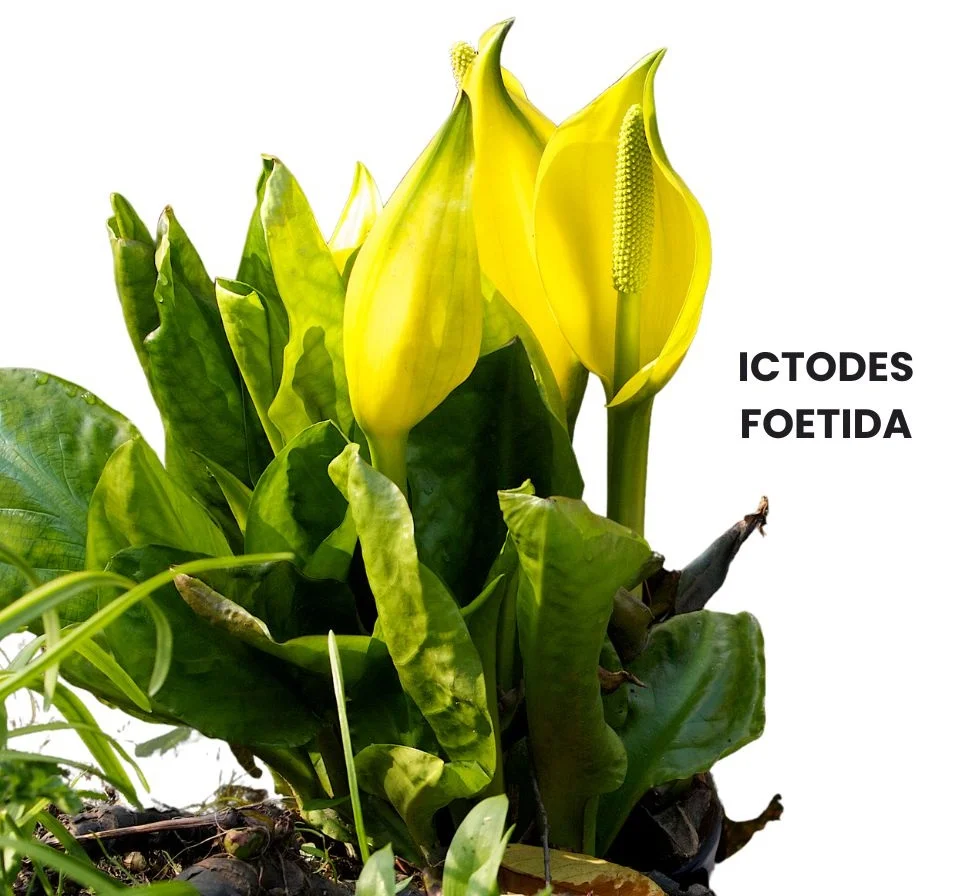Pothos foetidus, commonly known as Skunk Cabbage, is a homeopathic remedy primarily used for treating asthmatic complaints, particularly those exacerbated by inhaling dust.
It is also beneficial for hysteria, erratic spasmodic pains, and various respiratory issues.

Table of Contents
ToggleDETAILED SOURCE INFORMATION
Another Name: Ictodes foetida
Common Name: Skunk Cabbage
Scientific Classification
- Kingdom: Plantae
- Order: Arales
- Family: Araceae
- Genus: Symplocarpus
- Species: S. foetidus
Origin and Habitat
- Pothos foetidus, commonly known as Skunk Cabbage, is a perennial plant native to the eastern parts of North America.
- It is typically found in wetlands, swamps, and moist woodlands, preferring boggy soils rich in organic matter.
- The plant thrives in shady, cool environments and is known for its distinctive foul odour, reminiscent of the scent emitted by a skunk, especially when bruised or crushed.
Historical and Traditional Use
- Skunk Cabbage has a long history of medicinal use among Native American tribes such as the Iroquois and Mohegan tribes.
- Traditionally, various parts of the plant were used for treating respiratory ailments, including asthma, coughs, and bronchitis.
- The leaves and roots were also utilized for their antispasmodic and expectorant properties to relieve spasmodic coughs and breathing difficulties.
Phytochemical Composition
Skunk Cabbage contains several bioactive compounds, including alkaloids, glycosides, and sulfur-containing compounds.
These constituents contribute to its medicinal properties, particularly its ability to alleviate respiratory symptoms and promote expectoration.
Homeopathic Application
- In homeopathy, Pothos foetidus is primarily indicated for conditions characterized by spasmodic coughs, difficult breathing, and asthma exacerbated by inhaling dust or other irritants.
- It is also used for treating abdominal bloating, tension, and certain nervous conditions.
- Homeopathic preparations of Skunk Cabbage are made from the fresh plant material and are used in tincture form or lower potencies based on individual symptomatology.
KEY CHARACTERISTICS
MIND
- Absent-Minded and Irritable: Patients often experience absent-mindedness and irritability.
HEAD
- Headache in Single Spots: Persistent headaches localized in specific spots, accompanied by violent pulsation of the temporal arteries.
- Outward Drawing from Glabella: A sensation of outward pulling from the area between the eyebrows.
- Better in Open Air: Symptoms improve when in the open air.
- Red Swelling across Bridge of Nose: Noticeable red swelling across the bridge of the nose.
ABDOMEN
- Inflation and Tension: Sensation of bloating and tightness in the abdomen.
RESPIRATORY
- Spasmodic Croup: Sudden, severe episodes of coughing resembling croup.
- Troublesome Respiration: Difficult breathing accompanied by a sudden feeling of anguish and sweating.
- Sneezing with Throat Pain: Sneezing that causes pain in the throat.
- Chest Pain with Difficult Breathing: Pain in the chest that makes breathing difficult.
- Numb Tongue: A feeling of numbness in the tongue.
- Asthma: Asthmatic symptoms that are relieved by passing stool.
MODALITIES
- Worse: Inhaling dust.
- Better: In open air.
WHAT ARE MODALITIES IN HOMOEOPATHY?
RELATIONSHIP WITH OTHER DRUGS
- Compare with: Pulsatilla (Puls) for symptoms that improve in open air.
DOSE
- Tincture and Lower Potencies: Pothos foetidus is generally used in tincture form or lower potencies for effective results.
Frequently Asked Questions
What conditions does Pothos foetidus treat?
- Pothos foetidus is primarily used for asthmatic complaints, particularly those triggered by inhaling dust.
- It also helps with hysteria, spasmodic pains, respiratory issues like spasmodic croup, and abdominal bloating and tension.
How should Pothos foetidus be taken?
- It is generally taken in tincture form or lower potencies as recommended by a homeopathic practitioner.
Are there any side effects?
- Homeopathic remedies are typically safe when taken as directed.
- If you experience any new or worsening symptoms, consult your healthcare provider.
Can Pothos foetidus help with respiratory issues?
- Yes, Pothos foetidus is beneficial for various respiratory conditions, including asthma, spasmodic croup, and difficult breathing.
Glossary of Difficult Words
- Glabella: The smooth part of the forehead above and between the eyebrows.
- Temporal Arteries: Blood vessels located on the temples, on either side of the head.
- Spasmodic Croup: A condition characterized by sudden, severe coughing spells.
- Physometric: Relating to the measurement of physiological functions or properties.
